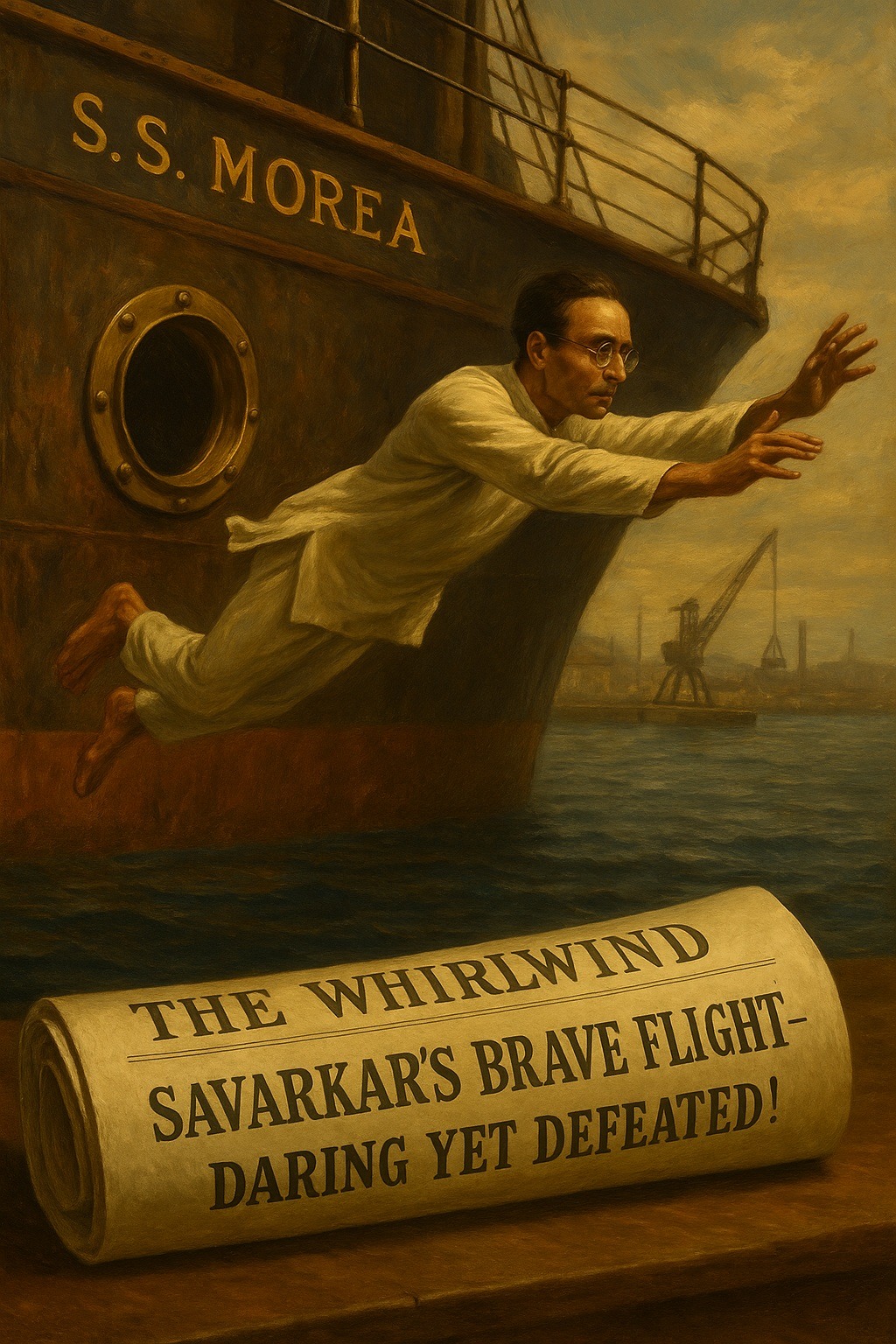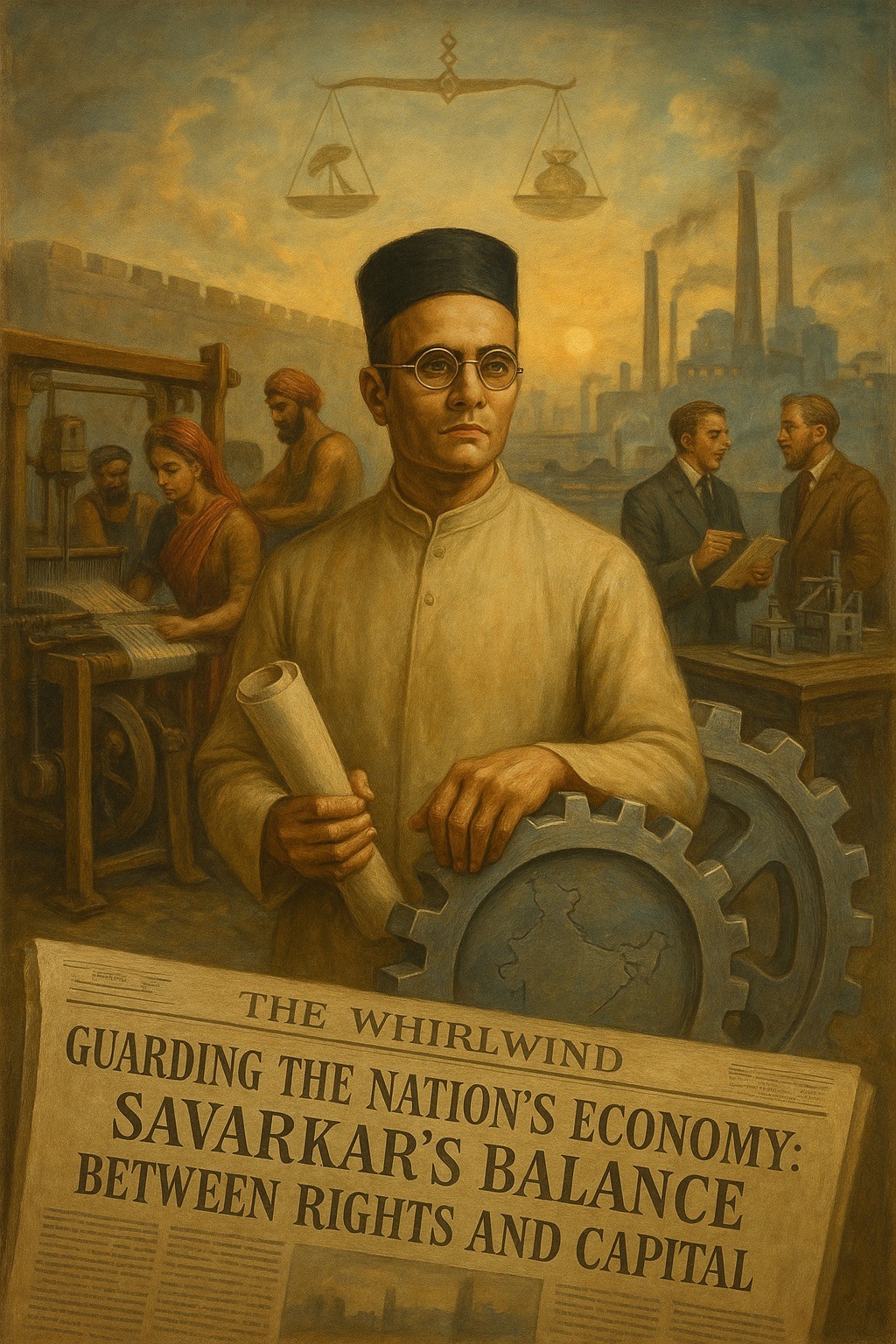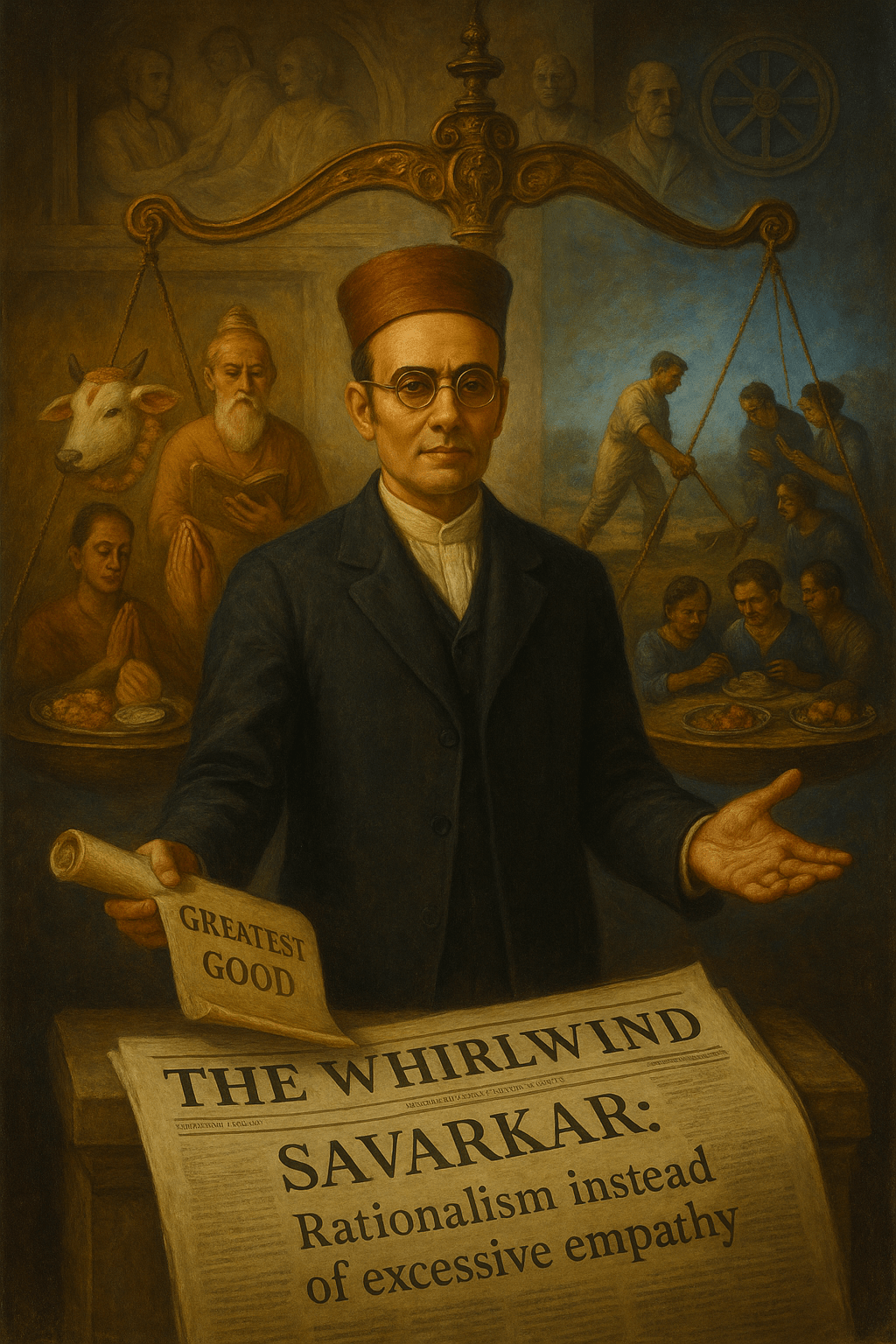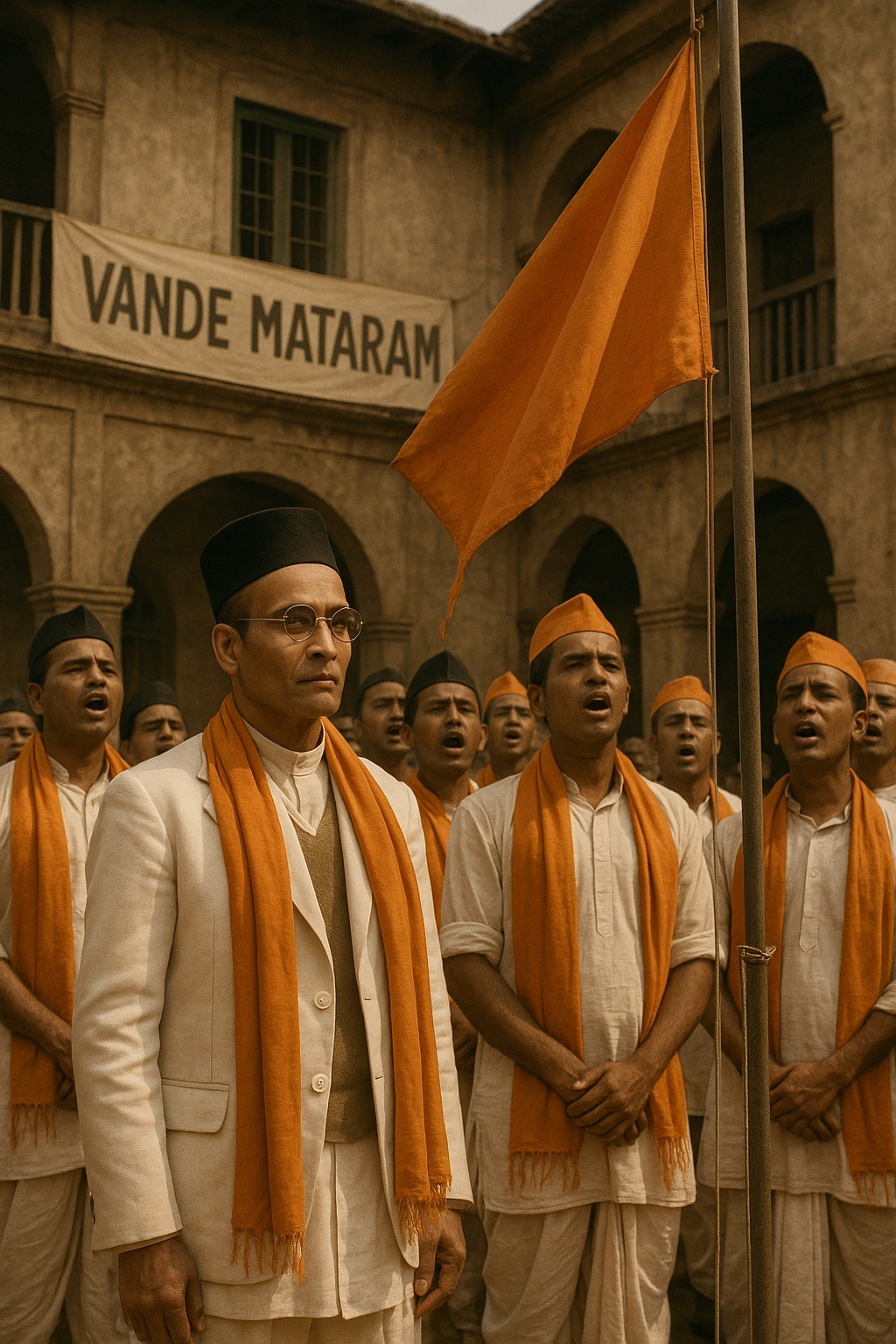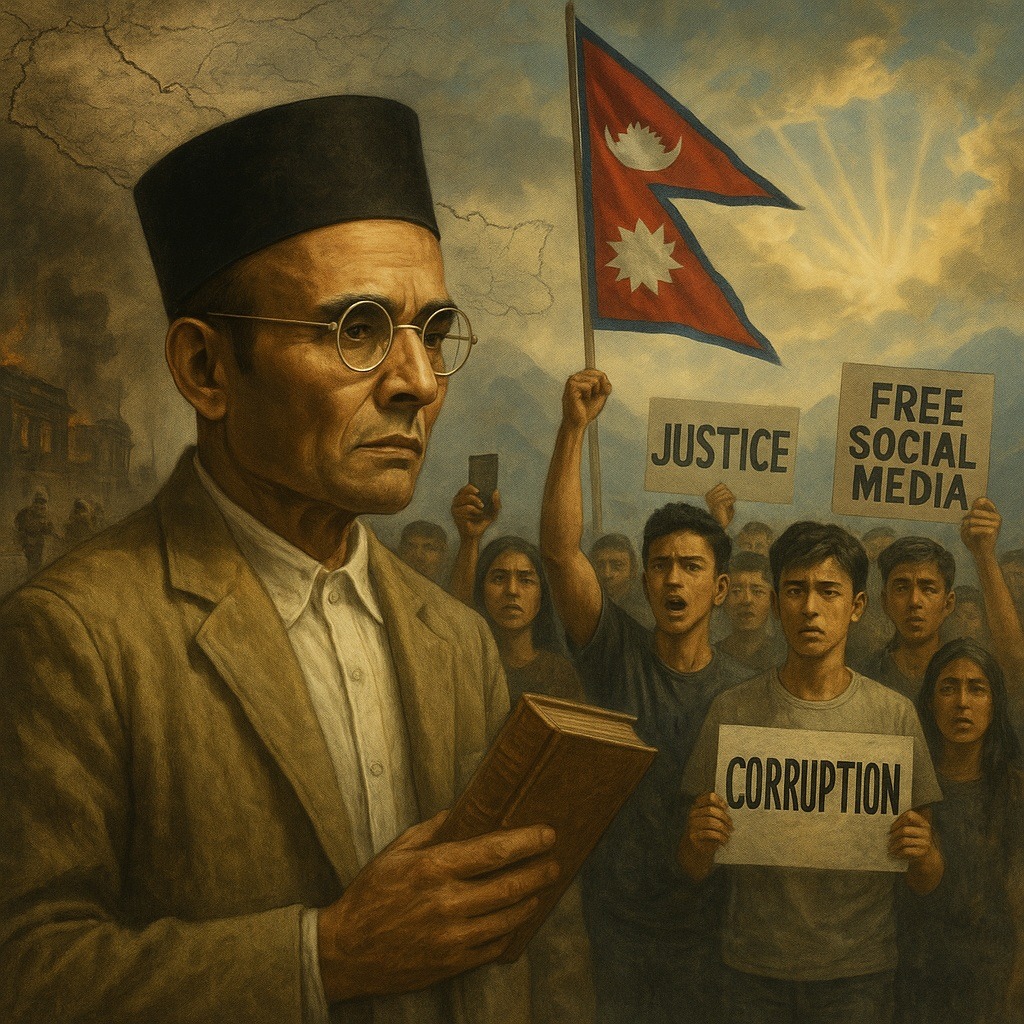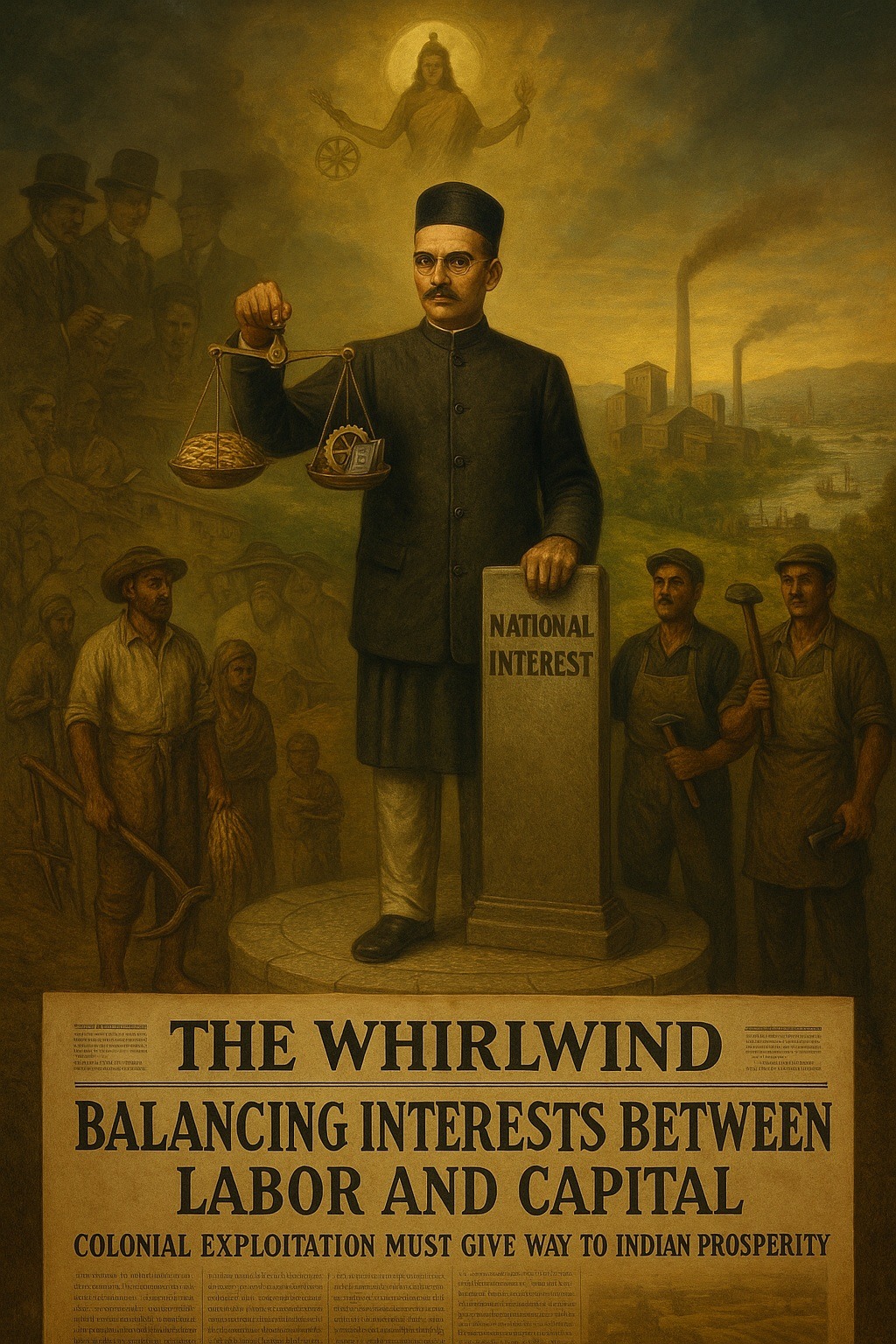Tag: Savarkar
-
On the morning of July 8, 1910, Vinayak Damodar (Veer) Savarkar managed to escape from his British guards aboard the steamer S.S. Morea, anchored in the French harbor of Marseille. After a brief swim from the docked ship to the quay, he set foot on French soil. Savarkar’s Plan Behind the Escape By reaching the…
-
Vinayak Damodar (Veer) Savarkar’s escape attempt at the French port of Marseilles on July 8, 1910, remains one of the most daring and dramatic episodes in the history of Indian freedom fighters in Europe. Years later, in his final press interview, Savarkar himself described it as the most memorable event of his life. What unfolded…
-
Savarkar’s Coding of Hindutva; Metacode Rashtra, Part 7; Code Territory 6/6); Codeelement Des, Indivisibility of the Territory (2/3) For Vinayak Damodar (Veer) Savarkar, Nepal was far more than a neighboring state. Within his vision of an indivisible Hindu nation, Nepal held a place of central importance. Nepal as the Core of Hindu Rashtra Savarkar saw…
-
Economic Dimension of Hindutva, Part 10; Savarkar’s Economic Principles (6/13) Economic stability and national prosperity depend on a balanced relationship between industry, labor, and capital. In a thriving economy, workers should fairly partake in the profits of the industry. However, in times of economic downturn, just as capital suffers losses, workers too must be prepared…
-
Savarkar’s Philosophy & Worldview, Part 10, Savarkar’s Five Philosophical Dimensions (3/6) Vinayak Damodar (Veer) Savarkar is often remembered for his unflinching advocacy of nationalism, but was also a man of profound philosophical depth and his philosophy encompassed much more than a call for political independence. In this third installment of our exploration of Savarkar’s five…
-
Every year, 7 September is observed as Vande Mataram Day, commemorating the pivotal role of this iconic song in India’s struggle for independence. The date recalls the decision of the Indian National Congress (INC) in 1905 to adopt Vande Mataram at the height of the Swadeshi Movement against the Partition of Bengal. More than a…
-
Economic Dimension of Hindutva, Part 9; Savarkar’s Economic Principles (5/13) The balance between labor and capital has long been a subject of debate in economic and political thought. Vinayak Damodar (Veer) Savarkar, known for his nationalist and revolutionary ideas, also put forward an economic perspective that sought to harmonize the interests of labor and capital…
-
On 1 July 1910, Vinayak Damodar Savarkar was removed from Brixton Prison under the heaviest of guards. His fate had been sealed: the British authorities had resolved to send him back to India to face trial in connection with revolutionary activities and the Nasik Conspiracy Case. For this purpose, he was placed aboard the French…


